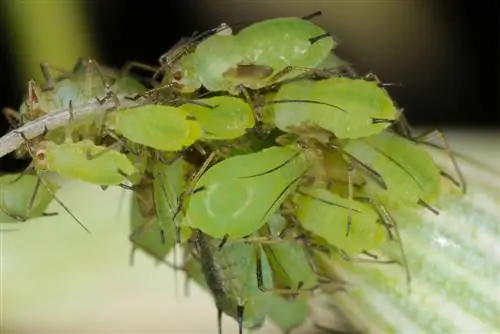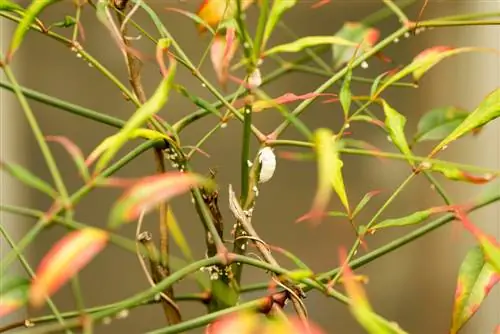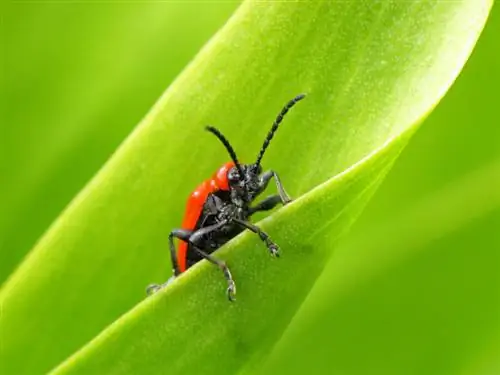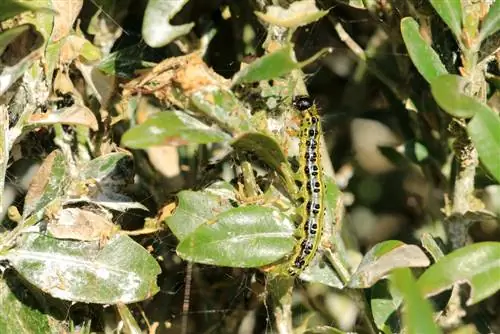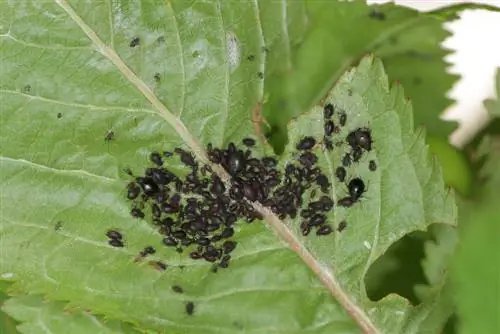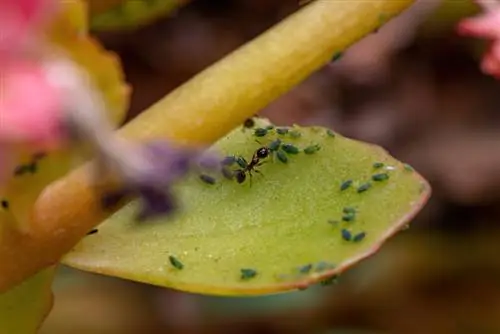- Author admin leonars@hobbygardeners.com.
- Public 2023-12-16 16:46.
- Last modified 2025-01-23 11:21.
Plant pests are not just annoying. They weaken the loquat and make it susceptible to other pathogens. Household products often help with an infestation of aphids, but weevils can also be controlled with simple tricks. Special plant extracts strengthen the loquat.

Which pests attack the loquat and how can you combat them?
Aphids and loquat weevils are common pests of loquats. Aphids can be controlled by washing or using a natural insecticide made from soap, rapeseed oil and water. It is best to remove black weevils manually in the evening, while nematodes help against the larvae. Plant strengtheners and natural enemies also promote pest defense.
Aphids
The plant pests, which are just a few millimeters in size, sit in small colonies on the leaf surfaces of the loquat. They form several generations within a short period of time, which can be either unwinged or winged. The aphids do not need a reproductive partner to reproduce. They reproduce asexually and must be combated completely. They use their proboscis to pierce the leaf paths in which the plant sap runs. This serves as a source of food for them. A large part is excreted as honeydew and leaves a sticky film.
Collect the aphids from the leaves. If the infestation is more severe, remove the pests with a jet of water. An aqueous solution of soap, rapeseed oil and water that is sprayed directly onto the plant promises success. Lacewings and ladybirds feed on aphids. With deadwood hedges and insect boxes you can create habitats for various beneficial insects.
Bigmouth Weevil
The black colored beetle is flightless and nocturnal as it is ideally camouflaged in the dark. This plant pest feeds on the leaf mass. Half-moon-shaped eroded leaf edges are a typical damage pattern, which indicates an infestation. The beetles go looking for food from May to June. They lay their eggs on the ground so that the larvae can feed on the roots. This causes the leaves to dry out due to a lack of water.
Search the plant and soil in the evening and remove the beetles. Hedgehogs and shrews are natural enemies of the black weevil that you can encourage in your garden. Special HM nematodes (€43.00 on Amazon), which are added to the irrigation water, help against the larvae.
Plant strengthening agents
Strong and he althy plants are rarely attacked by pests. Strengthen your trees regularly with a decoction of plant extracts. Stinging nettle, field horsetail or tansy are suitable for production. Garlic also has a deterrent effect on aphids. If there is an infestation, spray the garlic broth directly onto the leaves.
This encourages pest infestation:
- an unsuitable location
- incorrect care measures
- neighboring plants with pest infestation
- Monocultures

